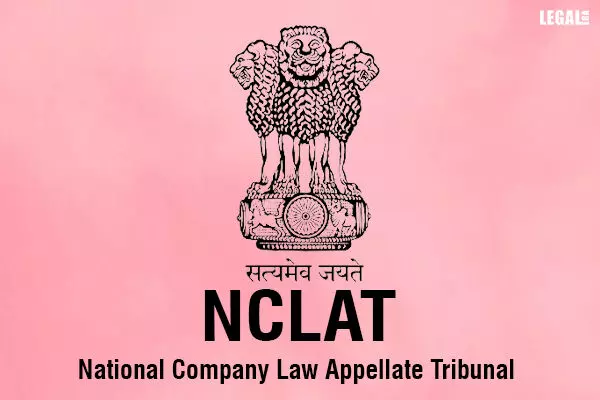- Home
- News
- Articles+
- Aerospace
- Artificial Intelligence
- Agriculture
- Alternate Dispute Resolution
- Arbitration & Mediation
- Banking and Finance
- Bankruptcy
- Book Review
- Bribery & Corruption
- Commercial Litigation
- Competition Law
- Conference Reports
- Consumer Products
- Contract
- Corporate Governance
- Corporate Law
- Covid-19
- Cryptocurrency
- Cybersecurity
- Data Protection
- Defence
- Digital Economy
- E-commerce
- Employment Law
- Energy and Natural Resources
- Entertainment and Sports Law
- Environmental Law
- Environmental, Social, and Governance
- Foreign Direct Investment
- Food and Beverage
- Gaming
- Health Care
- IBC Diaries
- In Focus
- Inclusion & Diversity
- Insurance Law
- Intellectual Property
- International Law
- IP & Tech Era
- Know the Law
- Labour Laws
- Law & Policy and Regulation
- Litigation
- Litigation Funding
- Manufacturing
- Mergers & Acquisitions
- NFTs
- Privacy
- Private Equity
- Project Finance
- Real Estate
- Risk and Compliance
- Student Corner
- Take On Board
- Tax
- Technology Media and Telecom
- Tributes
- Viewpoint
- Zoom In
- Law Firms
- In-House
- Rankings
- E-Magazine
- Legal Era TV
- Events
- Middle East
- Africa
- News
- Articles
- Aerospace
- Artificial Intelligence
- Agriculture
- Alternate Dispute Resolution
- Arbitration & Mediation
- Banking and Finance
- Bankruptcy
- Book Review
- Bribery & Corruption
- Commercial Litigation
- Competition Law
- Conference Reports
- Consumer Products
- Contract
- Corporate Governance
- Corporate Law
- Covid-19
- Cryptocurrency
- Cybersecurity
- Data Protection
- Defence
- Digital Economy
- E-commerce
- Employment Law
- Energy and Natural Resources
- Entertainment and Sports Law
- Environmental Law
- Environmental, Social, and Governance
- Foreign Direct Investment
- Food and Beverage
- Gaming
- Health Care
- IBC Diaries
- In Focus
- Inclusion & Diversity
- Insurance Law
- Intellectual Property
- International Law
- IP & Tech Era
- Know the Law
- Labour Laws
- Law & Policy and Regulation
- Litigation
- Litigation Funding
- Manufacturing
- Mergers & Acquisitions
- NFTs
- Privacy
- Private Equity
- Project Finance
- Real Estate
- Risk and Compliance
- Student Corner
- Take On Board
- Tax
- Technology Media and Telecom
- Tributes
- Viewpoint
- Zoom In
- Law Firms
- In-House
- Rankings
- E-Magazine
- Legal Era TV
- Events
- Middle East
- Africa
NCLAT Delhi Affirms RP's Decision To Raise Maintenance Charges, Ensures Continuation Of Electricity Service During CIRP

NCLAT Delhi Affirms RP's Decision To Raise Maintenance Charges, Ensures Continuation Of Electricity Service During CIRP
The National Company Law Appellate Tribunal (NCLAT) in Delhi, comprising Justice Ashok Bhushan (Chairperson), Mr. Barun Mitra (Technical Member), and Mr. Arun Baroka (Technical Member), has upheld the Resolution Professional's (RP) decision to increase maintenance charges for homebuyers of the Corporate Debtor. The decision, which involved raising electricity rates from ₹7 per unit to ₹8.91 per unit, was deemed necessary to cover electricity bills and other dues.
Earthcon Infracon Pvt. Ltd. (the Corporate Debtor) was handling two residential projects, "Sanskriti" and "CASA," when Corporate Insolvency Resolution Proceedings (CIRP) were initiated against it by the NCLT, New Delhi, in 2019.
The RP, appointed to manage the operations, including maintenance and electricity for homebuyers who had received their flats between February 2018 and January 2020, initially charged a maintenance fee of ₹1 per square foot plus GST. However, due to outstanding electricity bills owed to Noida Power Corporation Limited, the Committee of Creditors (CoC) decided to increase the maintenance fee to ₹2 per square foot plus GST in its 12th meeting on January 21, 2022, to address the unpaid electricity charges.
Homebuyers challenged this decision through an application (IA No. 1146 of 2022), seeking to prevent the disconnection of electricity due to non-payment of the increased fees. The Adjudicating Authority directed that residents pay the pending charges but prohibited disconnection. When the RP, unable to collect the dues, filed another application (IA No. 3234 of 2023) to seek permission for disconnection, the Authority modified its order on June 14, 2023, allowing coercive measures for non-payment. The homebuyers' appeal against this order was then filed before the NCLAT.
The NCLAT observed that there was a shortfall in maintenance charges and outstanding electricity dues when the RP took over. The Tribunal affirmed that under the Insolvency and Bankruptcy Code (IBC), the RP is responsible for managing these payments and ensuring the provision of essential services, including electricity, as mandated by Section 11(4)(d) of the RERA Act until the project maintenance is handed over to the homebuyers' association.
The Tribunal also noted that the CoC's decision to raise the electricity rate to ₹8.91 per unit was approved by 87% of the financial creditors' representatives. The Appellate Tribunal ruled that the IBC allows for the payment of dues for essential services during the CIRP period, and there is no provision exempting the Corporate Debtor from these payments until the moratorium period concludes.
Consequently, the NCLAT upheld the Adjudicating Authority's June 14, 2023 order and dismissed the appeal filed by the homebuyers.



